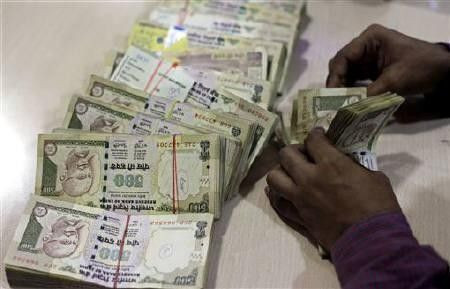Rupee Falls on Dollar Purchases by Banks

The rupee fell on Thursday, weighed by dollar purchases by some state-owned banks, negative local equities and caution over prolonged Greek bailout discussions.
At 10:25 a.m. (0455 GMT), the rupee was at 49.36/37 to the dollar, weaker than Wednesday's close of 49.15/16.
There seems to be no conviction to drag rupee much lower from here, and the time seems to be ripe for a retracement, said a senior foreign exchange trader at a foreign bank.
The rupee gained more than 7 percent in January, aided primarily by robust dollar flows. The currency dived nearly 16 percent in 2011 and was the worst performing major Asian unit against the greenback.
The Greece factor is still very much playing on top of the market's mind and on the rupee, said a senior currency trader at a large private sector bank. And looks like it (rupee) could break past the 49.50 level soon.
Greek party officials said the level of cuts in pensions remained a sticking point but discussions with international lenders would continue to conclude a deal before a meeting of euro zone finance ministers on Thursday.
The BSE Sensex was down 0.5 percent and the euro was at $1.3273, slightly higher than $1.3260 at end of local currency trade on Wednesday.
Most traders still rate the probability of a sustained sell-off in the rupee as low due to continuing dollar inflows and signals from the Reserve Bank of India that it would actively intervene to shore-up the currency.
The RBI has been intervening intermittently in the forex market over the past few months and has taken steps to cut out speculation and support the currency, which touched a record low of 54.30 on December 15.
The one-month offshore non-deliverable forward contracts were at 49.69.
In the currency futures market, the most-traded near-month dollar-rupee contracts on the National Stock Exchange, the MCX-SX and the United Stock Exchange were around 49.54, on a total volume of $1.06 billion.
© Copyright Thomson Reuters 2024. All rights reserved.




















